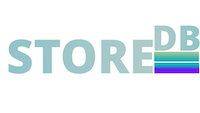
| STUDYID | STOREDB:STUDY1218 |
|---|---|
| CREATEDON | 2025-08-14 13:08:44 |
| MODIFIEDON | 2025-08-18 06:40:01 |
| UPLOADER | Nadja Zeleznik |
| DOI | DOI:10.20348/STOREDB/1218 |
| STUDY NAME | ||
|---|---|---|
| D8.4 Report on stakeholders’ engagement | ||
| STUDY STATUS | ||
| Published: Open access to everyone | ||
| DATA SHARING POLICY | ||
| CC-Attribution Non-Commercial No Derivatives | ||
| PRINCIPAL INVESTIGATOR | ||
| Nadja Zeleznik | ||
| RADONORM RESEARCH PRIORITY | ||
| Other activities contributing to low-dose risk research | ||
| BIOLOGICAL SAMPLE AVAILABLE | ||
| No | ||
| ECOLOGICAL DATA | ||
| No | ||
| STUDY DESCRIPTION | ||
| This report presents the outcomes of stakeholder engagement activities carried out within the RadoNorm project, which aims to advance radiation protection strategies related to radon and Naturally Occurring Radioactive Materials (NORM). Stakeholder engagement was recognised as a fundamental component of the project, ensuring that research outcomes are relevant, impactful, and responsive to societal and technical needs. Through a structured and iterative approach, RadoNorm identified, categorised, and actively involved a diverse spectrum of stakeholders, including scientific communities, regulatory authorities, policymakers, industry professionals, residents, media, and the general public.
The engagement process was informed by early stakeholder mapping and the establishment of network groups, which allowed for tailored communication and more effective involvement. Stakeholders were grouped into eight categories based on their roles, interests, and potential influence, and these classifications guided the development of communication strategies and dissemination tools. A dual-database system—one for project participants and another for external stakeholders—enabled continuous updates, targeted outreach, and GDPR-compliant data management. As of July 2025, the stakeholder database includes 141 entries from 41 countries, reflecting the project’s wide geographical and institutional reach. Key engagement tools included the RadoNorm website, newsletters, social media platforms, citizen science initiatives, surveys, workshops, and five Annual Meetings. Notably, the European Radon Behavioural Atlas, the largest stakeholder engagement initiative of its kind, captured radon-related perceptions and behaviours across 15 countries and over 17,000 respondents. Additional activities such as the NORM e-survey and citizen science projects in six countries demonstrated the project's commitment to participatory research. Feedback mechanisms, including panel discussions and dedicated sessions for stakeholder input, were integrated throughout the project to refine actions and maximise societal relevance. Overall, RadoNorm's stakeholder engagement activities supported the dissemination and exploitation of project results, strengthened links between science and society, and laid the groundwork for sustainable partnerships beyond the project’s lifespan. The methods and lessons documented in this deliverable offer valuable guidance for future initiatives seeking inclusive and effective stakeholder engagement in environmental and public health research. | ||
| DATASET NAME | ||
|---|---|---|
| RadoNorm D8.4 Report on stakeholder engagement | ||
| DOI | DOI:10.20348/STOREDB/1218/1338 | |
| DELIVERABLE | ||
| D8.4 | ||
Type: application/pdf
File size:
Uploaded on: 2025-08-18 06:41:30
| DATASET NAME | ||
|---|---|---|
| D8.4 Report on stakeholders’ engagement | ||
| DOI | DOI:10.20348/STOREDB/1218/1337 | |
| DELIVERABLE | ||
| 8.4 | ||
Type: application/pdf
File size:
Uploaded on: 2025-08-14 13:10:14